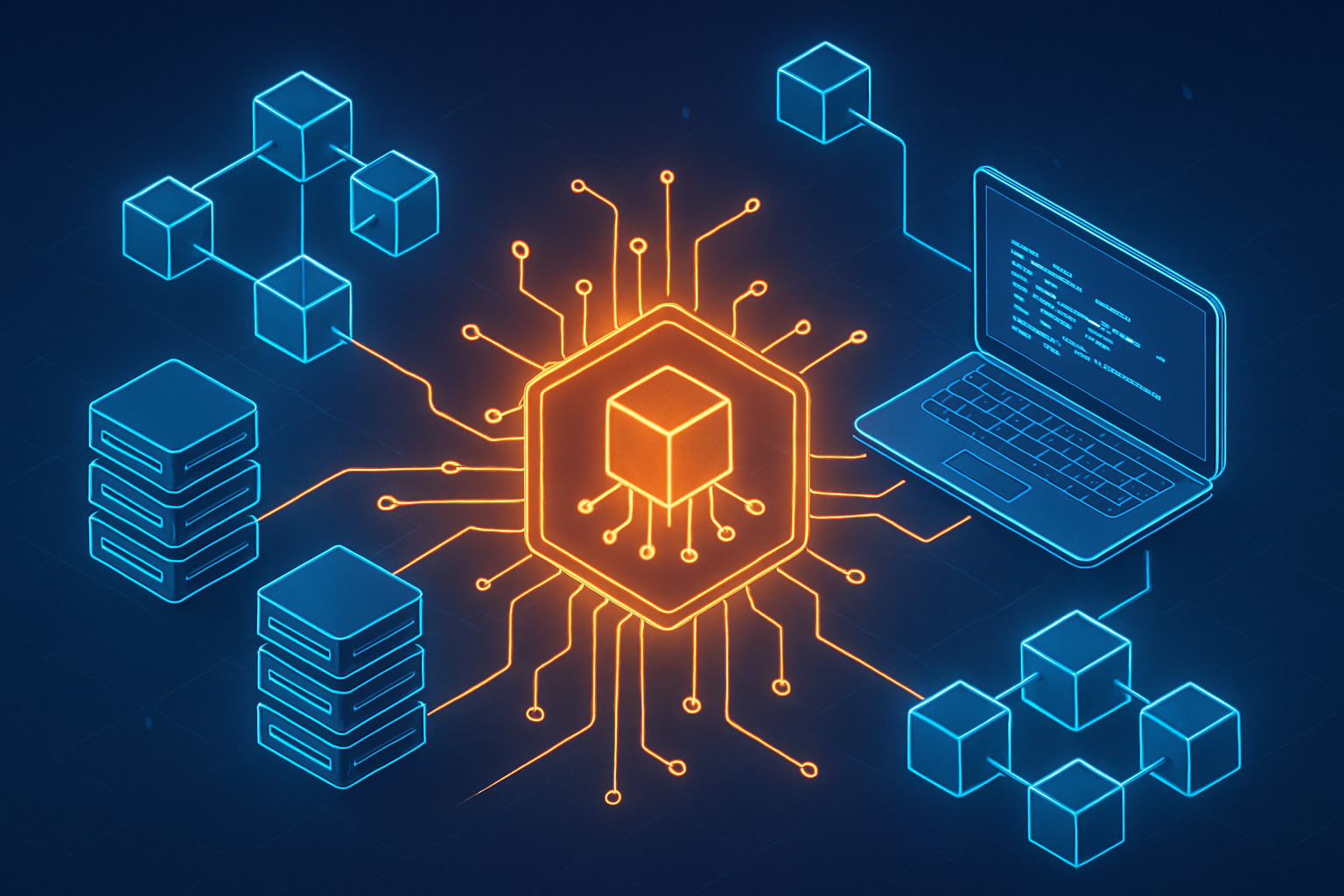
A single point of failure can take down an entire network. That’s the risk centralized systems face every day. If one server goes offline, businesses, financial systems, and even entire industries can come to a halt. Decentralized computing eliminates this risk by distributing data and processing power across multiple nodes, making systems more secure, efficient, and resistant to failures. SmartChain’s infrastructure relies on this principle to ensure reliability and scalability.
How SmartChain Uses Decentralized Computing
SmartChain doesn’t just use decentralized computing for security; it’s woven into its entire framework. Unlike traditional networks that rely on a central authority to manage transactions and data, SmartChain distributes these responsibilities across a network of independent nodes. This setup brings advantages that go beyond just keeping things running smoothly.
Security and Fraud Prevention
A centralized system is a hacker’s dream. One breach can expose sensitive information and compromise entire operations. With decentralized computing, SmartChain makes it nearly impossible for attackers to target a single point of weakness.
- Transactions are validated by multiple nodes instead of one authority.
- Data is stored across a distributed network, reducing the risk of a single-point failure.
- Cryptographic techniques ensure that even if one node is compromised, the overall system remains intact.
Efficiency and Cost Reduction
Running everything through a single server can slow things down and rack up costs. SmartChain’s decentralized model spreads out the workload, making it more efficient.
- No bottlenecks – Processing is handled by multiple nodes, preventing slowdowns.
- Lower costs – No need to maintain expensive centralized servers.
- Faster transactions – Tasks are completed in parallel rather than waiting in a single queue.
Scalability Without Breaking the System
Adding more users to a centralized system often leads to slower speeds and higher costs. With SmartChain, more users mean more nodes contributing to the network’s processing power. Instead of becoming sluggish, the system actually gets stronger.
- More nodes increase processing power.
- Data storage expands without hitting capacity limits.
- Performance remains stable even with growing demand.
Key Technologies Powering SmartChain’s Decentralized Computing
The backbone of SmartChain’s decentralized computing isn’t just a single technology—it’s a combination of several working together.
Blockchain as the Foundation
At its core, SmartChain relies on blockchain to store and verify transactions securely. Each transaction is recorded in a distributed ledger, ensuring transparency and preventing tampering.
- Every transaction is verified by multiple nodes before being added to the chain.
- Data is immutable, meaning it can’t be altered once recorded.
- Eliminates the need for middlemen, reducing costs and delays.
Smart Contracts Automate Trust
Traditional agreements require intermediaries to enforce terms. Smart contracts replace this need by executing agreements automatically when conditions are met.
- No third parties are required, reducing legal and administrative costs.
- Execution is instant once the conditions are met.
- Reduces the risk of disputes since everything is pre-coded.
Distributed Cloud Storage
Instead of relying on a single company’s servers, SmartChain uses distributed cloud storage where data is broken into fragments and stored across multiple locations.
- If one storage location fails, the data is still accessible from others.
- Reduces reliance on centralized cloud providers.
- Ensures data security by encrypting and splitting files across multiple nodes.
Why Decentralization Matters for SmartChain’s Future
Building a decentralized infrastructure isn’t just about improving security or efficiency—it’s about future-proofing the system. Centralized models struggle to adapt as new challenges arise, but decentralized systems evolve naturally with demand.
Censorship Resistance
In centralized systems, authorities can block transactions or restrict access. With decentralized computing, no single entity has control, making censorship nearly impossible.
- Financial transactions remain unrestricted.
- Users have full control over their own data.
- Governments and corporations can’t manipulate or shut down the network.
Resilience Against Attacks
DDoS attacks cripple centralized networks by overwhelming them with traffic. SmartChain’s decentralized structure distributes the load, making it resistant to these kinds of attacks.
- Traffic is spread across multiple nodes, preventing overload.
- No single failure point means operations continue uninterrupted.
- Security improves as the network grows.
A Model for the Next Generation of Applications
SmartChain’s infrastructure isn’t just about keeping things running—it’s about setting a standard for how future applications should be built. Traditional apps rely on centralized data centers, but decentralized computing shifts the paradigm.
- More privacy for users since data isn’t controlled by a single entity.
- Greater reliability as systems don’t go offline due to one point of failure.
- Faster, more efficient processing as computing power is spread across multiple nodes.
The Challenge of Decentralized Computing and How SmartChain Solves It
Decentralization brings massive benefits, but it also introduces challenges. Without a central authority, how do you ensure trust, efficiency, and smooth operation?
Managing Network Consensus
In a decentralized system, decisions must be made collectively. SmartChain solves this with a consensus mechanism that ensures all nodes agree on the validity of transactions.
- Proof-of-Stake (PoS) – Instead of relying on energy-intensive mining, PoS allows participants to validate transactions based on the amount of tokens they hold.
- Delegated mechanisms – Certain trusted nodes are elected to verify transactions, keeping the system fast while remaining decentralized.
Balancing Speed and Security
Centralized systems are often faster because they don’t need multiple approvals. SmartChain tackles this by optimizing the way transactions are processed without compromising security.
- Transactions are grouped and verified in batches.
- Parallel processing speeds up approvals.
- Network upgrades continually improve efficiency.
Encouraging Participation
Decentralized networks rely on users to keep things running. SmartChain rewards participants through incentives, ensuring a healthy and active network.
- Users earn rewards for validating transactions.
- Storage providers are compensated for contributing resources.
- A self-sustaining economy keeps the network growing.
Final Thoughts
Decentralized computing isn’t just an upgrade—it’s a necessity for systems that demand security, efficiency, and resilience. SmartChain isn’t following the traditional path of centralized networks; it’s setting a new standard where power is distributed, transactions are secure, and performance scales with demand.
As industries continue shifting toward decentralized solutions, SmartChain’s infrastructure proves that decentralization isn’t just a trend—it’s the future of reliable and unstoppable networks.




